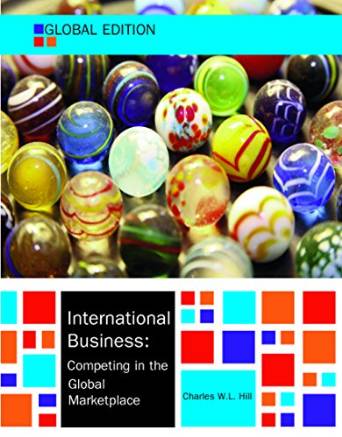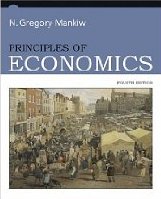No |
Day |
Book
Chapter |
Topics |
Further
material |
1 |
Mon 22 June |
(Mankiw chap. 1) |
Introduction
and “10 Principles of Economics”
- Basic Questions: Why Economics?
-> Basic
Concepts of Economics
|
|
2 |
Tue 23 June |
(Mankiw chap. 1) |
Introduction: Basic
problems; economic systems |
- Hierarchy
of goals in market economies
- See also the
quotations of T. Friedman below
-
The production process
- Functions of
Competition |
3 |
Wed 24 June |
|
Teams' Presentation
about Mankiws
"Ten Principles of Economics"
|
Video about economic
approaches: "60
Second Adventures in Economics"
Some Videos "Fight
of the Century" / Fear
the boom and the bust
- "Fear the
Boom and Bust" a Hayek vs. Keynes Rap Anthem
- Fight
of the Century: Keynes vs. Hayek Round Two
and more
information like "The
Tale of the Dueling Economists".
Texts of the video |
4 |
Thu 25 June |
Chap. 1 |
Globalization |
Warm-up
questions ;-)
-> Socrative,
waiting
for the teacher |
5 |
Mon 29 June |
Chap. 1
Chap. 2
|
Globalization
National Differences in Political Economy
|
-
"Wall Street" (1987) @ Wikipedia; "Greed
is good" speech on Youtube
- Milton Friedman
- Greed |
6 |
Tue 30 June |
Chap. 2
|
National Differences in Political Economy
|
+ Teams present "their" country ->
poster + presentation (~5 min, see table below) |
7 |
Wed 1 July |
Chap. 3 |
Political Economy and Economic Development |
See sources below,
esp.: the GapMinder
- http://www.gapminder.org/ignorance
- Rosling@Zeitgeist
(2007) |
8 |
Thu 2 July |
Chap. 3 |
Political Economy and Economic Development |
- Hofstede
Center: Strategy - Culture - Change
- details about the group presentations (as described in the Syllabus) |
9 |
Mon 6 July |
Chap. 4
|
Differences in Culture
|
|
10 |
Tue 7 July |
Chap. 4
|
Differences in Culture
|
+ team-presentations
about Hofstede-dimensions for "your" country, see table below
- Balance
of Payments (BoP), Current
account balance - comparison table at the World Bank,
- BEA: International
Economic Accounts with U.S.
International Transactions Tables, International
Trade and Investment Country Facts
|
11 |
Wed 8 July |
(chap 5) |
(We are only briefly going to discuss parts of c.5:
Ethics in International Business - slides 1-7, 14, 18, 26-29, 31-32) |
Warm-up
questions ;-)
-> Socrative,
waiting
for the teacher
- WTO
++ Wiki
(history, functions, map, ...) ++ Member
Countries |
12 |
Thu 9 July |
Test 1 (midterm) |
- Test
1 with 80 MC questions
topics: Introduction, basic problems, hierarchy of goals ... 10 principles,
Hill chapters 1-4 and the parts of chap. 5 that we discussed. |
Please
check the online resources, tests and case studies / maps on the book
webpage: online-material
from the 9th edition
|
13 |
Mon 13 July |
Chap. 6 |
Presentation Team 1
International Trade Theory
|
|
14 |
Tue 14 July |
Chap. 6
Chap. 7 |
Presentation Team 2
International Trade Theory
The Political Economy of International Trade
|
|
15 |
Wed 15 July |
Chap. 7 |
Presentation Team 3
The Political Economy of International Trade
|
|
16 |
Thu 16 July |
Chap. 8 |
Presentation Team 4
+ Presentation Team 5
Foreign Direct Investment
|
|
17 |
Mon 20 July |
Chap. 9 |
Evaluation: IDEA @ uncw.campuslabs.com/courseeval
Regional Economic Integration
|
Warm-up
questions chapter 6
-> Socrative,
waiting
for the teacher
+ 5 new words (for the four language) -> Yes / no + Resume / c.v.
+ Bathroom + Computer + Cell phone + "bless you"
EU:
European Central Bank ECB:
+ Map
of Euro area
+ FACTS
presentations
+ Video: The
History of the EU, EMU and the European Central Bank
+ Video: Integration
of market infrastructure
+ leitzinsen.info
(further links: Educational
Sources:
videos and presentations
(definitions
of monetary aggregates + MFI
information + Inflation
Monitor + overview
presentation) ) |
18 |
Tue 21 July |
Chap. 9
Chap. 11
|
Regional Economic Integration (continued)
+ country presentation of Spain (in the EU)
Summary
and YOUR QUESTIONS !!!
The International Monetary System
Feedback |
Study
Abroad!
An invitation to the World, esp. (Hochschule)
Bremen ;-)
at UNCW/Cameron see http://csb.uncw.edu/global/index.htm
and/or talk to Dr.
Thomas Porter --- for the summer program
in Bremen, please talk to Dr.
Christopher Dumas (Professor of Economics) or Dr.
Tom Janicki (Professor of Management Information Systems Information
Systems / Operations Management) |
19 |
Wed 22 July |
|
Reading / Study day (no class) |
|
20 |
Thu 23 July |
Test 2 (Final) |
Final
Test with ~80 MC questions
.
topics: Hill
chapters 6, 7, 8, 9 and parts of 11
+ Case studies of the teams (topics + important content of ppt (=no details,
no numbers) |
Please check
the online resources, tests and case studies / maps on the book webpage:
online-material
from the 9th edition
|


